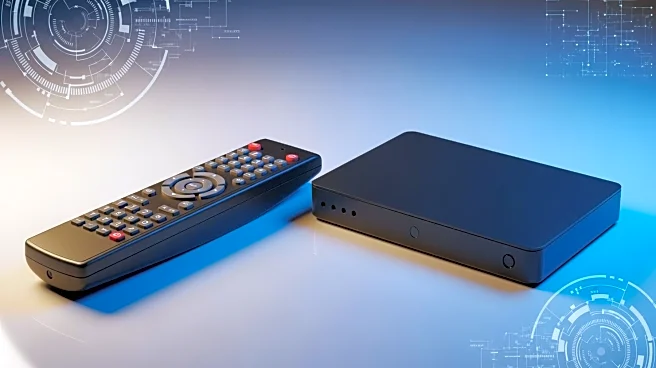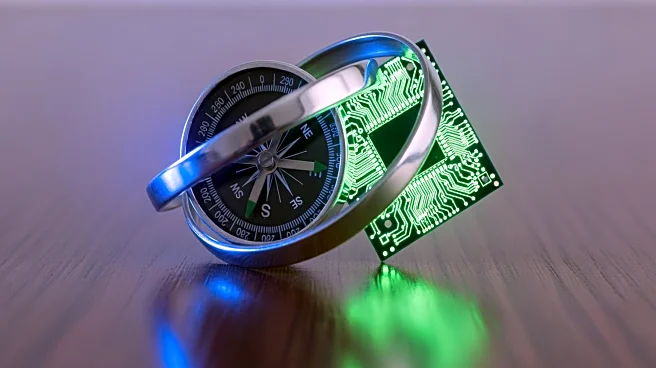What's Happening?
TiVo, once a pioneer in digital video recording technology, has seen its influence wane despite winning numerous legal battles over its intellectual property. In the 2000s, TiVo became synonymous with
DVR technology, popularizing features like pausing live TV and recording shows. However, as the 2010s progressed, TiVo's focus on defending its patents in court against major companies like EchoStar, Motorola, and Verizon overshadowed its ability to innovate in the rapidly evolving television landscape. While TiVo successfully defended its Time Warp patent, the rise of streaming services like Netflix and Hulu, along with affordable streaming devices from Roku and Google, shifted consumer preferences away from traditional DVRs. TiVo's hardware offerings stagnated, and the company eventually pivoted to licensing its technology, culminating in its acquisition by Rovi and later Xperi, both known for their patent portfolios.
Why It's Important?
The decline of TiVo highlights the broader shift in consumer behavior from traditional television viewing to streaming services. As streaming platforms continue to dominate, companies that fail to adapt risk obsolescence. TiVo's story serves as a cautionary tale for tech companies that prioritize legal battles over innovation. The company's inability to transition effectively into the streaming era resulted in a significant loss of market share, as evidenced by the decline in traditional pay TV subscriptions from 103 million in 2010 to 49.6 million in 2025. This shift underscores the importance of agility and foresight in the tech industry, where consumer preferences can change rapidly.
What's Next?
TiVo has announced plans to focus on developing a smart TV operating system, a move that comes years after the initial smart TV boom. This strategic pivot aims to leverage TiVo's brand recognition and user interface expertise to capture a share of the smart TV market. However, the company faces stiff competition from established players and must innovate quickly to remain relevant. The success of this venture will depend on TiVo's ability to offer unique features that differentiate its platform from competitors. As the company exits the hardware business, its future will hinge on the successful execution of this new strategy.
Beyond the Headlines
TiVo's journey reflects the broader challenges faced by companies reliant on intellectual property as their primary revenue source. The tech industry's rapid evolution demands continuous innovation, and companies that focus solely on protecting existing patents may miss opportunities for growth. TiVo's experience also raises questions about the role of patent litigation in stifling or promoting innovation. As the company transitions to a software-focused model, it must navigate the complexities of the smart TV market, where consumer expectations for seamless integration and user experience are high.









